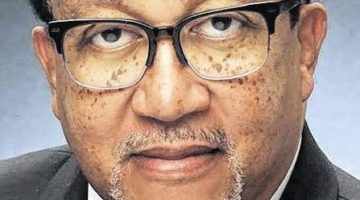 I am convinced that climate change would be on Dr. Martin Luther King Jr.’s agenda today.
I am convinced that climate change would be on Dr. Martin Luther King Jr.’s agenda today.
King never viewed civil rights narrowly: He took on the war in Vietnam against the advice of other civil rights leaders. He addressed poverty, no matter what the person’s race.
Climate change impacts everyone, but as with the above issues, black communities are the most negatively impacted. A Congressional Black Caucus study has documented that for the United States (as the impact of Hurricane Katrina attests).
The United Nations has declared Africa to be the most negatively impacted continent. The U.N. has also declared the small island states such as those in the Caribbean as the most vulnerable.
The recent U.N. conference in Copenhagen failed the hopes of activists to achieve enforceable results with large enough targets. Yet it was a sea change from a year ago. At that time, the U.S. was still in denial. The Kyoto treaty was dead in the water in the U.S. Congress. China and India, which are rapidly growing their economies, were not involved.
Thanks to President Barack Obama, that has changed, and the ship has turned in the right direction. NAACP Climate Justice Initiative Director Jacqui Patterson was in Copenhagen, and she made significant contact with African observers who also came to keep up the pressure.
This conference had at least three interesting developments in the involvement of Africa. The first was the designation of a spokesperson for the African Union, Prime Minister Meles Zenawi of Ethiopia, to advance the continent’s interests. He achieved some immediate commitments, thus not limiting African countries to rhetoric only.
A second interesting development was the presence of President Jacob Zuma of South Africa in the group of five, which brokered a breakthrough in the stalemate. The third development was the address to the delegates by President Abdoulaye Wade of Senegal, who stated that while the African Union spokesperson would set forth the continent’s needs, Wade would present a vision of an Africa capable of contributing to the solution.
He talked about the “green wall” of trees he has started in Senegal, with plans to go across the continent halting the advancement of the desert and sequestering carbon dioxide. He proposed a joint African European effort to develop solar energy in the Sahara Desert, which could reduce dependence on oil and coal.
He announced the formation of an organization “Science Without Frontiers” headed by the Malian scientist Dr. Modibo Diarra, an astrophysicist who worked on NASA’s Mars missions and has been the chairman of Microsoft Africa to address solutions for climate change in the continent.
In the U.S., climate change actions adopted in the House face the same opposition in the Senate as did health care.
We in South Florida are so vulnerable to rising sea levels, hurricanes and increasing tropical diseases that we need to be involved, and we should also support African involvement on the world stage.
I have been invited to a meeting of African scientists and policy makers addressing climate change in coastal areas, and I will report the results soon in the South Florida Times.
Brad Brown is the first vice president of the Miami-Dade NAACP. He is also a contractor with the National Oceanic and Atmospheric Administration, where he works on African coastal and marine projects.
JabariBrad@Aol.com












No Comment